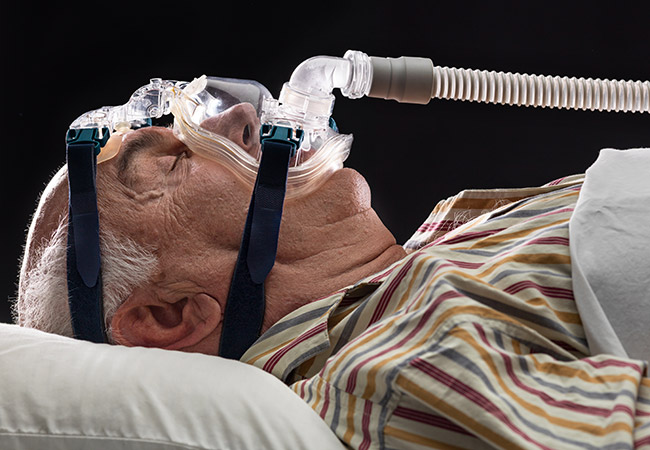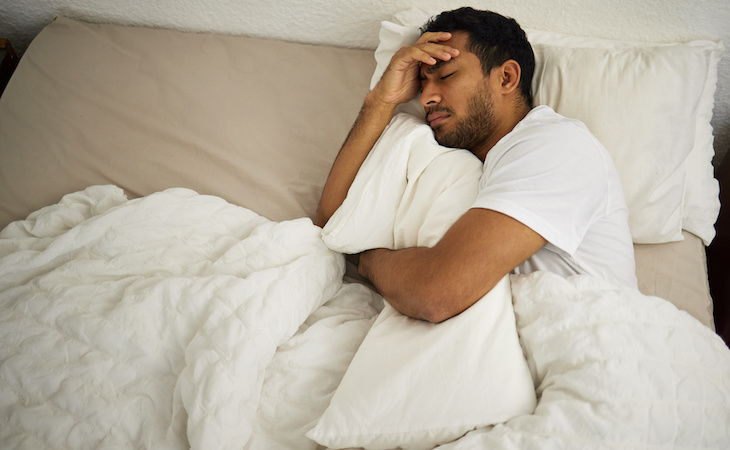Comprehensive Sleep Disorder Treatment - Find the Best Solutions
Comprehensive Sleep Disorder Treatment - Find the Best Solutions
Blog Article
Efficient Treatment Solutions for Handling Rest Disorders and Enhancing Relaxed Rest
In the realm of medical care, the management of rest conditions and the quest for relaxing sleep are pivotal parts of total health. Efficient therapy solutions offer a diverse approach to take on these challenges, varying from cognitive behavioral treatments to alternative practices that advertise relaxation and mindfulness. The exploration of numerous techniques, including the assimilation of drug and light therapy, opens up a realm of opportunities in the pursuit of much better sleep high quality. As we browse the complex landscape of sleep conditions and look for to improve our rest experience, a much deeper understanding of these treatment services may hold the key to opening a more rejuvenating and fulfilling corrective trip.
Cognitive Behavior Modification for Insomnia (CBT-I)
Cognitive Behavior Modification for Insomnia (CBT-I) is an organized, evidence-based therapy strategy that concentrates on addressing the underlying variables contributing to rest disruptions. This sort of treatment intends to change actions and thoughts that worsen sleep problems, ultimately advertising healthy sleep patterns. CBT-I usually includes a number of vital components, consisting of cognitive therapy, sleep restriction, stimulus control, and sleep health education and learning.
Cognitive treatment aids people identify and change negative thought patterns and beliefs concerning rest that may be impeding their capability to fall or stay asleep. Rest restriction involves restricting the quantity of time invested in bed to match the person's real sleep duration, thus boosting sleep efficiency (insomnia therapy). Stimulus control techniques aid develop a strong association in between the bed and rest by encouraging people to head to bed only when drowsy and to stay clear of engaging in promoting tasks in bed
Furthermore, rest health education concentrates on developing healthy rest practices, such as maintaining a regular sleep schedule, producing a relaxing bedtime regimen, and optimizing the sleep environment. By addressing these aspects thoroughly, CBT-I uses an efficient non-pharmacological intervention for handling sleeping disorders and improving overall sleep top quality.
Rest Health Practices
Having actually established the structure of cognitive restructuring and behavior alterations in addressing sleeplessness through Cognitive Behavioral Therapy for Insomnia (CBT-I), the emphasis now changes towards checking out necessary Sleep Hygiene Practices for preserving ideal sleep high quality and total wellness.
Rest hygiene practices include a variety of habits and ecological elements that can dramatically impact one's capacity to go to sleep and stay asleep throughout the night. Constant rest and wake times, creating a relaxing going to bed regimen, and optimizing the sleep atmosphere by maintaining it dark, quiet, and cool are crucial components of excellent sleep hygiene. Limiting direct exposure to screens before bedtime, staying clear of stimulants like high levels of caffeine near going to bed, and taking part in routine exercise throughout the day can likewise advertise better rest quality.
Additionally, practicing relaxation strategies such as deep breathing workouts or meditation prior to bed can help soothe the mind and prepare the body for sleep. By integrating these rest hygiene practices right into one's daily regimen, individuals can establish a healthy sleep pattern that sustains restful rest and general wellness.
Relaxation Strategies and Mindfulness
Carrying out relaxation techniques and mindfulness methods can play a critical role in cultivating a sense of tranquility and advertising quality sleep. insomnia counseling. These methods aim to peaceful the mind, reduce stress, and develop an ideal atmosphere for restful rest. One widely exercised method is deep breathing workouts, where individuals concentrate on sluggish, deep breaths to loosen up the body and mind. Modern muscular tissue leisure includes tensing and after that launching each muscle group, promoting physical relaxation. Furthermore, led images can help carry people to a calm area in their minds, assisting in tension decrease and enhancing sleep quality.
Mindfulness practices, such as reflection and yoga exercise, are likewise efficient in advertising relaxation and enhancing rest. Mindfulness encourages people to remain existing in the minute, letting go of worries about the past or future. By incorporating these techniques right into a going to bed routine, people can indicate to their bodies that it is time to loosen up and prepare for rest. Generally, incorporating leisure techniques and mindfulness practices can dramatically add to managing sleep conditions and improving total rest top quality.

Medication Options for Rest Disorders
After checking out leisure methods and mindfulness practices as non-pharmacological treatments for boosting rest top quality, it is vital to take into consideration medication options for individuals with sleep conditions. In instances where way of living changes and therapy do not supply sufficient relief, medicine can be an important tool in managing sleep disruptions.
Generally prescribed medications for rest disorders include benzodiazepines, non-benzodiazepine hypnotics, antidepressants, and melatonin receptor agonists. Benzodiazepines, such as diazepam, are sedatives that can assist cause sleep, but they are commonly advised for short-term use due to the threat of dependence. Non-benzodiazepine hypnotics like zolpidem are likewise used to deal with insomnia and have a reduced risk of dependancy contrasted to benzodiazepines. Antidepressants, such as trazodone, can be valuable for individuals with co-occurring anxiety and sleep disruptions. Melatonin receptor agonists, like ramelteon, target the body's natural sleep-wake cycle and directory can be useful for managing rest patterns.
It is vital for individuals to seek advice from a doctor to identify the most appropriate drug alternative based upon their details rest disorder and medical history.
Light Treatment for Circadian Rhythm Law
Light therapy, additionally called phototherapy, is a non-invasive treatment approach used to control circadian rhythms and improve sleep-wake cycles. This therapy entails direct exposure to intense light that simulates natural sunshine, which aids to reset the body's biological rhythm. By revealing individuals to particular wavelengths of light, commonly in the morning or night relying on the wanted effect, light treatment can effectively adjust the circadian rhythm to promote wakefulness throughout the day and boost peaceful sleep during the night.
Study has actually revealed that light therapy can be especially beneficial for individuals with body clock disorders, such as delayed rest phase syndrome or jet lag. It can also be practical for those experiencing seasonal affective condition (SAD), a sort of depression that normally occurs during the winter season when all-natural light exposure is lowered. Light treatment is normally well-tolerated and can be used along with various other therapy methods for rest disorders to maximize end results and boost overall sleep high quality.
Verdict
Finally, efficient therapy remedies for managing rest problems and enhancing restful rest consist of Cognitive Behavioral Treatment for Sleep Problems (CBT-I), rest hygiene practices, relaxation techniques and mindfulness, drug options, and light therapy for circadian rhythm guideline. These techniques can help individuals enhance their rest quality and general wellness. It is essential to seek advice from a healthcare supplier to establish the most suitable approach for addressing sleep concerns.
As we browse the elaborate landscape of rest conditions and look for to boost our rest experience, a deeper understanding of these treatment options might hold the key to opening an extra refreshing and meeting corrective journey.
Rest restriction entails restricting the quantity of time spent in bed to match the person's actual rest duration, thus enhancing rest efficiency. Regular sleep and wake times, creating a relaxing bedtime routine, and maximizing the rest atmosphere by maintaining it dark, peaceful, and cool are insomnia light therapy essential elements of good sleep hygiene. Light therapy is usually well-tolerated and can be utilized in combination with other therapy try here techniques for rest disorders to optimize results and improve general sleep top quality.

Report this page